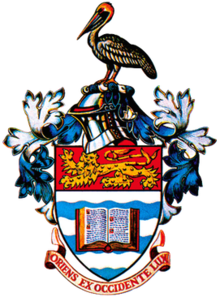An agile UWI seeks sustainable funding strategies

Regional Headquarters, Jamaica. Friday, November 27, 2020. — Though the scope of the COVID-19 global pandemic might have been difficult to foresee at its onset, The University of the West Indies (The UWI), as an agile and responsive organisation guided by the tenets of its Triple A Strategy, has been both strategic and resourceful in seeking the funding needed to uphold its purpose and mandate to propel the people of the region along a progressive and prosperous path.
Among the pandemic’s negative effects upon the Caribbean region is the weakened economy, projected to contract by approximately 8% in 2020. Consequently, many contributing governments have found themselves unable to meet their financial commitments to The UWI. As often stated by Professor Sir Hilary Beckles, Vice-Chancellor of The UWI, the region’s ability to attain its higher education objectives is critical to its quest to become globally competitive and to provide a dignified, prosperous and sustainable lifestyle for all its inhabitants. Adequate funding, therefore, remains high on the university’s list of priorities.
During a virtual media engagement on Thursday November 12, Vice-Chancellor Beckles elaborated on recent initiatives taken by the university to leverage and convert its excellent global reputation into revenue generation.
He noted that on October 14 of this year, the University convened a landmark virtual Development Partner Forum, themed “Investing in higher education to build more diversified and resilient post-COVID economies”, which drew over 100 participants. The discussion revolved around the mobilisation of international resources to support the regional objectives of CARICOM. The forum, held in conjunction with the Economic Commission for Latin America and the Caribbean (ECLAC), brought together leading international donors such as the World Bank, the IMF, the United States Agency for International Development (USAID), the European Union Aid, and agencies from Canada and Australia for a bilateral discussion. According to Vice-Chancellor Professor Beckles, “This was arguably the first time that The UWI was able to sit down with all the global development partners and speak about the future of the Caribbean.”
Through this multi-partner approach, The UWI seeks to establish a US$600 million trust fund over three years for the Caribbean’s human capital development. It is hoped that this investment will help stem the systemic decline in the region’s higher education and research sector.
The meeting with ECLAC was preceded by The UWI’s successful bilateral conversation with the Open Society Foundations (SOROS Foundations), the highest funded private foundation in the world, which is committed to working with like-minded entities globally to promote justice, democratic governance and human rights. The result of this engagement was the signing of a Memorandum of Understanding (MOU) in September 2020. Among the areas of focus will be The UWI’s wide-ranging climate change research and focus on climate justice, as well as the consolidation of climate initiatives through The UWI’s Global Institute for Climate-Smart Studies and Resilience (GICSRS).
Each campus is also developing bankable projects to take to market. Among the signature ones are The UWI Global School of Medicine at Debe, Trinidad, and the move by The UWI Open Campus to provide online education products to new markets like Guyana.
The delicate balancing of revenue generation and cost containment remains a priority for the university system. Therefore, developing on the concept of The UWI’s next funding frontier, which Vice-Chancellor Professor Beckles introduced in May in his annual report to Council, he re-emphasized the two-pronged “Ten in Two Strategy”, which mandates a reduction in expenditure across the board of 10% in two years. Through careful re-evaluation and revision of its expenditure, The UWI has succeeded in further cutting its budget by 6% in 2020.
These initiatives, as articulated by the Vice-Chancellor are reflective of a UWI that is becoming more agile, sustainable and equipped to exercise its mandate.





